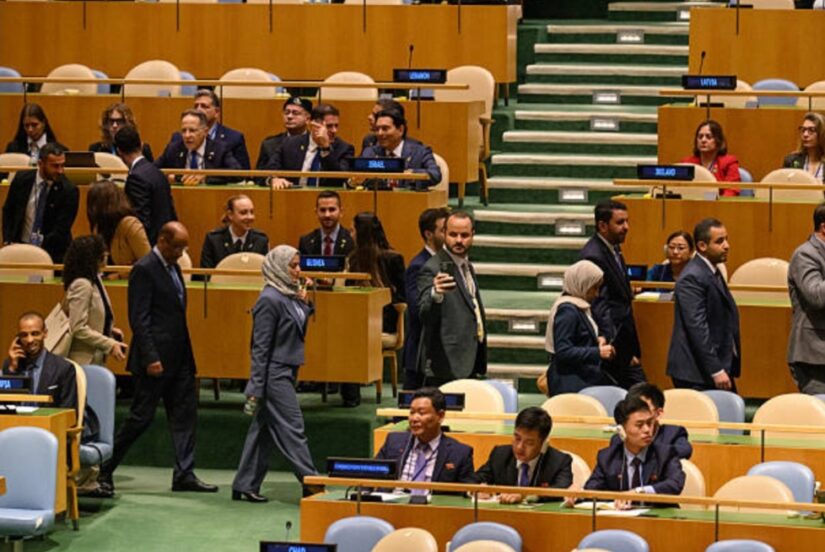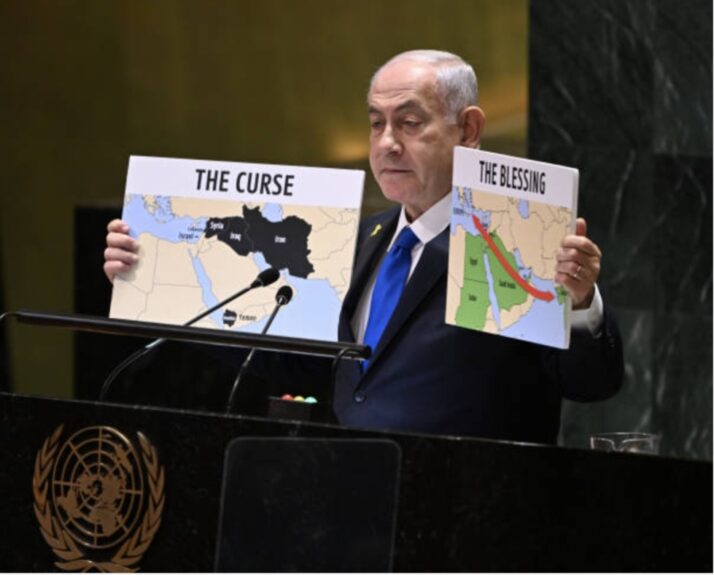
Crystal Dike
Tension filled the chamber on Friday, September 26, as Israeli Prime Minister Benjamin Netanyahu delivered a forceful address at the United Nations, defending Israel’s war in Gaza and condemning recent international recognition of Palestinian statehood.
From the very start of his speech, dozens of delegates staged a walkout in protest, while supporters in the balcony responded with a standing ovation, highlighting the stark divisions within the global body.

Netanyahu sharply criticized countries such as France, Britain, Australia, and Canada for recognizing a Palestinian state. “When the most savage terrorists on earth are effusively praising your decision, you didn’t do something right. You did something wrong. Horribly wrong,” he declared.
He argued that the Palestinian rejection of a Jewish state remains at the core of the conflict, warning that granting Palestinians a state near Jerusalem after October 7 is comparable to giving al-Qaida a state near New York City after September 11. “This is sheer madness,” he insisted, underscoring the core message of his address at the United Nations.
The Prime Minister also dismissed mounting accusations of genocide in Gaza as “false,” despite an independent UN inquiry concluding that Israel is committing war crimes, citing both mass destruction and evidence of intent. The dramatic reactions in the assembly—the walkouts and standing ovation—reflected the highly polarized opinions surrounding Israel’s policies and the broader question of Palestinian statehood.
As the session concluded, analysts noted that Netanyahu’s remarks at the United Nations reinforced Israel’s hardline stance while emphasizing the country’s increasingly isolated position on the international stage.
The walkouts, applause, and heated debates during the speech made it clear that the question of Palestinian recognition will remain a central point of contention in global diplomacy, with the United Nations serving as the critical arena for these discussions.

